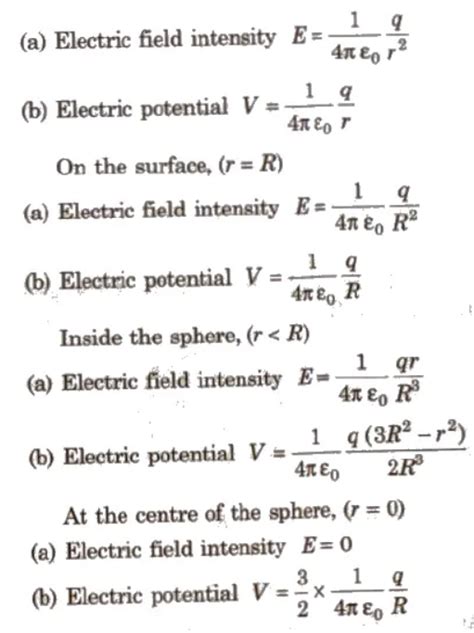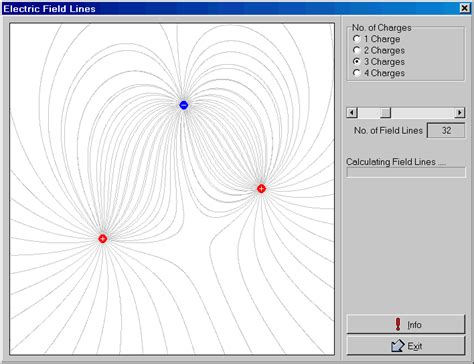charge in conducting box electric field Answer: We start with a uniform electric field. We put a solid, ideal conductor in it. The electric field permeates everything, including the conductor. The charged particles in the conductor respond to the force exerted on them . From wood furniture legs and bun feet to the modern and simple styling of metal table legs, our selection will allow you to choose the perfect table or furniture leg to complete any project.
0 · electrostatic field charge chart
1 · electric field charge simulator
2 · electric field charge graph
3 · electric field charge diagram
4 · electric field charge chart
5 · electric field charge calculator
6 · charges in a conductor
7 · charge in conductor physics
eMachineShop has machined aluminum parts for over 15 years. You can design and order your parts with our free CAD software or upload your own CAD file for a fast quote. FREE Shipping in the USA. No Minimum Order Quantity. 100% Quality Guaranteed. is a lightweight, non-magnetic, silver-colored metal that can be formed into almost any shape.
This is an evaluation of the right-hand side of the equation representing Gauss’s law. It is often necessary to perform an integration to obtain the net enclosed charge. Evaluate the electric field of the charge distribution. The field may now .This is an evaluation of the right-hand side of the equation representing Gauss’s law. It is often necessary to perform an integration to obtain the net enclosed charge. Evaluate the electric field of the charge distribution. The field may now .
To determine the electric field near the plane, we choose a gaussian surface that is a box (as in Example 17.2.3), but require the lower end of the box to go through the plane, as illustrated in Figure 17.3.1.Arrange positive and negative charges in space and view the resulting electric field and electrostatic potential. Plot equipotential lines and discover their relationship to the electric . Answer: We start with a uniform electric field. We put a solid, ideal conductor in it. The electric field permeates everything, including the conductor. The charged particles in the conductor respond to the force exerted on them .
There cannot be any charge enclosed inside of this conducting medium. To be able to calculate the electric field that it generates at a specific point in space, again, we will apply Gauss’s law .In summary, Gauss’s law provides a convenient tool for evaluating electric field. However, its application is limited only to systems that possess certain symmetry, namely, systems with .
Figure 24.32b showed a conducting box inside a parallel-plate capacitor. The electric field inside the box is E (→ above E) = 0 (→ above 0) . Suppose the surface charge on the exterior of the .
Electric Field: Parallel Plates. If oppositely charges parallel conducting plates are treated like infinite planes (neglecting fringing), then Gauss' law can be used to calculate the electric field . To determine if there is an excess charge at Point 1, you can use an electric field sensor or a charged object. If the electric field sensor shows a non-zero reading or the .This is an evaluation of the right-hand side of the equation representing Gauss’s law. It is often necessary to perform an integration to obtain the net enclosed charge. Evaluate the electric field of the charge distribution. The field may now be found using the results of steps 3 and 4.
This is an evaluation of the right-hand side of the equation representing Gauss’s law. It is often necessary to perform an integration to obtain the net enclosed charge. Evaluate the electric field of the charge distribution. The field may now be found using the results of steps 3 and 4.
To determine the electric field near the plane, we choose a gaussian surface that is a box (as in Example 17.2.3), but require the lower end of the box to go through the plane, as illustrated in Figure 17.3.1.Arrange positive and negative charges in space and view the resulting electric field and electrostatic potential. Plot equipotential lines and discover their relationship to the electric field. Create models of dipoles, capacitors, and more! Answer: We start with a uniform electric field. We put a solid, ideal conductor in it. The electric field permeates everything, including the conductor. The charged particles in the conductor respond to the force exerted on them by the electric field.There cannot be any charge enclosed inside of this conducting medium. To be able to calculate the electric field that it generates at a specific point in space, again, we will apply Gauss’s law and we will use pill box technique to calculate the electric field.
In summary, Gauss’s law provides a convenient tool for evaluating electric field. However, its application is limited only to systems that possess certain symmetry, namely, systems with cylindrical, planar and spherical symmetry.
Figure 24.32b showed a conducting box inside a parallel-plate capacitor. The electric field inside the box is E (→ above E) = 0 (→ above 0) . Suppose the surface charge on the exterior of the box could be frozen.Electric Field: Parallel Plates. If oppositely charges parallel conducting plates are treated like infinite planes (neglecting fringing), then Gauss' law can be used to calculate the electric field between the plates. To determine if there is an excess charge at Point 1, you can use an electric field sensor or a charged object. If the electric field sensor shows a non-zero reading or the charged object is attracted or repelled by Point 1, it indicates the presence of excess charge.
This is an evaluation of the right-hand side of the equation representing Gauss’s law. It is often necessary to perform an integration to obtain the net enclosed charge. Evaluate the electric field of the charge distribution. The field may now be found using the results of steps 3 and 4.
This is an evaluation of the right-hand side of the equation representing Gauss’s law. It is often necessary to perform an integration to obtain the net enclosed charge. Evaluate the electric field of the charge distribution. The field may now be found using the results of steps 3 and 4.
To determine the electric field near the plane, we choose a gaussian surface that is a box (as in Example 17.2.3), but require the lower end of the box to go through the plane, as illustrated in Figure 17.3.1.Arrange positive and negative charges in space and view the resulting electric field and electrostatic potential. Plot equipotential lines and discover their relationship to the electric field. Create models of dipoles, capacitors, and more! Answer: We start with a uniform electric field. We put a solid, ideal conductor in it. The electric field permeates everything, including the conductor. The charged particles in the conductor respond to the force exerted on them by the electric field.

There cannot be any charge enclosed inside of this conducting medium. To be able to calculate the electric field that it generates at a specific point in space, again, we will apply Gauss’s law and we will use pill box technique to calculate the electric field.In summary, Gauss’s law provides a convenient tool for evaluating electric field. However, its application is limited only to systems that possess certain symmetry, namely, systems with cylindrical, planar and spherical symmetry.Figure 24.32b showed a conducting box inside a parallel-plate capacitor. The electric field inside the box is E (→ above E) = 0 (→ above 0) . Suppose the surface charge on the exterior of the box could be frozen.
Electric Field: Parallel Plates. If oppositely charges parallel conducting plates are treated like infinite planes (neglecting fringing), then Gauss' law can be used to calculate the electric field between the plates.
electrostatic field charge chart

plum metallic house paint
pokemon arceus metal box
OEM Machining Parts - Select 2024 high quality OEM Machining Parts products .
charge in conducting box electric field|charges in a conductor